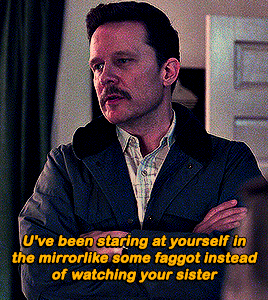Nervous System Regulation.
nervous system regulation.
this post is especially dedicated for my fellow neurodivergents, specifically those who have add/adhd.
it’s normal for all of us to feel stressed sometimes. stress, as well as anxiety, are both feelings we all experience from time to time. however, dealing with a lot of stress is proven to have a negative impact on your body, more specifically your (autonomic) nervous system. by understanding how to regulate your nervous system, you will have an easier time managing stressful moments, and overall live a lot more balanced and peaceful life. ⋮ © credits
the nervous system.
your nervous system is the control center of your body. it is the part of your body that’s responsible for regulating your breathing, your heartbeat, your blood pressure, your digestion, and also the way you feel. the part of your nervous system that deals with the emotional wellbeing of yours is called "autonomic nervous system".
when feeling stressed, your body naturally reacts in a way to prepare you for the situation. it could respond through an increased heart rate, sweaty palms or the tension of muscles. nevertheless, our bodies cannot constantly withstand stress. continuously experiencing high levels of cortisol and adrenaline can lead to (sometimes serious) health issues.
a dysregulated nervous system.
a nervous system becomes dysregulated when the body cannot properly handle certain situations the way it used to. the body's way of responding to certain situations falls out of sync. it indicates a state of imbalance as you experience your body not being able to keep up with you.
signs.
these are some of the signs indicating you might have a dysregulated nervous system:
anxiety
easily irritated
memory problems
difficulty concentrating
headaches
quickly overwhelmed
mood swings
panic attacks
digestive issues
trouble sleeping
constant fatigue
chronic pain
persistent muscle tension
weakened immune system
stressors.
here is a list of stressors that are known to disrupt your nervous system balance:
chronic stress
burnout
traumatic events
poor sleep habits
unhealthy diet
no time for relaxation
support.
here are things you can do to help regulating your nervous system again:
meditating and resting
listening to music
dancing and moving
stretching and walking
eft tapping
massaging yourself
affirming
practicing mindfulness
reconnecting with nature
hugging someone or yourself
somatic shaking
rubbing ice cubes on face
taking a cold shower
sleeping and waking up early
grounding yourself
humming, singing and laughing
talking to someone
reading or listening
using a weighted blanket
drinking herbal tea
engaging in calming activities
deep breathing exercises
prioritising your sleep
with love, ella.
More Posts from Vicky-poo and Others
25 ADHD Affirmations
**I am capable and resilient, even when faced with challenges.
I embrace my unique way of thinking and processing information.
My worth is not determined by productivity or external achievements.
I am deserving of understanding and support from myself and others.
I acknowledge my strengths and celebrate my accomplishments, big and small.
I am more than my ADHD; I am a complex and valuable individual.
I deserve self-compassion, especially during difficult moments.
I am constantly learning and growing, and that is a significant achievement.
My worth is inherent, and I do not need to prove it to anyone.
I am not defined by my challenges; I am defined by how I overcome them.
I choose to focus on what I can control and let go of what I cannot.
My self-worth is independent of external judgments or opinions.
I am worthy of taking breaks and practicing self-care without guilt.
I have the power to create positive change in my life.
My journey is unique, and I honor the progress I've made.
**I am deserving of love and acceptance just as I am.
My journey with ADHD is an opportunity for growth and self-discovery.
I release the need for perfection and embrace my authentic self.
I am not defined by my mistakes; I learn and move forward.
My worth is not determined by the pace at which I accomplish tasks.
I choose to focus on my strengths and use them to my advantage.
I am a valuable and important part of my community and relationships.
My creativity and unique perspective bring value to the world.
I am resilient, and I have the strength to overcome obstacles.
I am worthy of setting boundaries that prioritize my well-being.
Joel protecting Ellie on the ground while he's up in the building. Him seeing the truck at the same time she did, following her as she ran to it for shelter. Him being so zoned in on her and only her. Him seeing that she's going to make a run to save Henry and Sam, and her looking to him for cover, and him knowing what it means and nodding, "go for it, I've got you."
Holy fucking shit.
Y/N: HYDRATE OR DIE-DRATE!
Y/N: *Aggressively throws water bottles*
Donna: What's up with Y/N?
Alcina: Y/N is trying to yell mental health and wellbeing into us.
Y/N: I APPRECIATE ALL OF YOU!
Moreau, close to crying: It's working.










Like or reblog don't repost




happy girls ♡

In the middle of a fanfic and this shit happens
The world hates me
re8 spoiler
me, when Ethan kills one of the dimitrescus and he has to make some stupid comment:



*screams* (cr. @joonie)
Workbooks to improve executive functioning
Since the post I made last night about improving executive functioning was so popular, I figured I should pull these out of my comments and give them their own post, in case it's helpful for people.
I have worked with the publishers of all of the books linked below and can vouch for their psychology books. The publisher of most of them, New Harbinger, is an extremely credible evidence-based psychology publisher.
Obvious disclaimer that everyone's brain is different and what works for someone else may not work for you.
Is there evidence that executive functioning can be improved? Yes. This book appears to be a very thorough overview of the field, and contains both advocates and detractors of cognitive training, for a balanced perspective. From the table of contents, I would really recommend jumping straight to Part 3: Developmental Perspectives for executive functioning (EF) writ large.
Certain therapy modalities are specifically designed for skill-building in areas like impulsivity, decision-making, emotional regulation, and cognitive flexibility, all of which are EF skills or very dependent on EF skills. Dialectical Behavior Therapy (DBT) is probably the best field to look at for these - skill-building in those areas is its core goal.
Some DBT workbooks:
The Dialectical Behavior Therapy Skills Workbook: Practical DBT Exercises for Learning Mindfulness, Interpersonal Effectiveness, Emotion Regulation, and Distress Tolerance
The Dialectical Behavior Therapy Skills Workbook for Teens
There are also a lot of workbooks for ADHD that are sometimes more broad but also can help with executive functioning:
The Adult ADHD and Anxiety Workbook: Cognitive Behavioral Therapy Skills to Manage Stress, Find Focus, and Reclaim Your Life
The CBT Workbook for Adult ADHD: Evidence-Based Exercises to Improve Your Focus, Productivity, and Wellbeing
The Neurodivergence Skills Workbook for Autism and ADHD
General executive functioning workbooks:
The Executive Functioning Workbook for Teens
Executive Functioning Workbook for Adults: Exercises to Help You Get Organized, Stay Focused, and Achieve Your Goals
Hope these are helpful to someone!!










The brother who perpetuated the cycle of abuse vs the brother who broke the cycle of abuse ( from @theoriginalsapphic)
-
 my-pacific-euphoria liked this · 1 month ago
my-pacific-euphoria liked this · 1 month ago -
 y-urious reblogged this · 1 month ago
y-urious reblogged this · 1 month ago -
 y-urious liked this · 1 month ago
y-urious liked this · 1 month ago -
 callmeebeba liked this · 2 months ago
callmeebeba liked this · 2 months ago -
 spoiledprincess97 liked this · 2 months ago
spoiledprincess97 liked this · 2 months ago -
 seamycelium liked this · 2 months ago
seamycelium liked this · 2 months ago -
 maplegus liked this · 2 months ago
maplegus liked this · 2 months ago -
 qwertycutiesblog liked this · 2 months ago
qwertycutiesblog liked this · 2 months ago -
 thefallenhulya liked this · 3 months ago
thefallenhulya liked this · 3 months ago -
 stargi5linterludeblog liked this · 3 months ago
stargi5linterludeblog liked this · 3 months ago -
 aseland liked this · 3 months ago
aseland liked this · 3 months ago -
 chronosq reblogged this · 3 months ago
chronosq reblogged this · 3 months ago -
 writhingdevotion liked this · 3 months ago
writhingdevotion liked this · 3 months ago -
 captain-hector-vector liked this · 3 months ago
captain-hector-vector liked this · 3 months ago -
 rookielight liked this · 3 months ago
rookielight liked this · 3 months ago -
 chronosq liked this · 3 months ago
chronosq liked this · 3 months ago -
 dakotaegill liked this · 3 months ago
dakotaegill liked this · 3 months ago -
 starzaligning reblogged this · 3 months ago
starzaligning reblogged this · 3 months ago -
 starzaligning liked this · 3 months ago
starzaligning liked this · 3 months ago -
 yemimahari liked this · 3 months ago
yemimahari liked this · 3 months ago -
 awesomeivylovesunicorns liked this · 3 months ago
awesomeivylovesunicorns liked this · 3 months ago -
 emilyhours reblogged this · 3 months ago
emilyhours reblogged this · 3 months ago -
 emilyhours liked this · 3 months ago
emilyhours liked this · 3 months ago -
 laura-naruto-fan1998 reblogged this · 3 months ago
laura-naruto-fan1998 reblogged this · 3 months ago -
 guidedbylove444 liked this · 3 months ago
guidedbylove444 liked this · 3 months ago -
 blue-sides liked this · 4 months ago
blue-sides liked this · 4 months ago -
 shiniloki reblogged this · 4 months ago
shiniloki reblogged this · 4 months ago -
 shiniloki liked this · 4 months ago
shiniloki liked this · 4 months ago -
 automaticwinnerknightmaker liked this · 4 months ago
automaticwinnerknightmaker liked this · 4 months ago -
 dreamerforperfectdays liked this · 4 months ago
dreamerforperfectdays liked this · 4 months ago -
 dreamerforperfectdays reblogged this · 4 months ago
dreamerforperfectdays reblogged this · 4 months ago -
 ravepill reblogged this · 4 months ago
ravepill reblogged this · 4 months ago -
 ravepill liked this · 4 months ago
ravepill liked this · 4 months ago -
 timefli3s liked this · 5 months ago
timefli3s liked this · 5 months ago -
 decadentprunepatrolturtle reblogged this · 5 months ago
decadentprunepatrolturtle reblogged this · 5 months ago -
 goddessdivine666 liked this · 5 months ago
goddessdivine666 liked this · 5 months ago -
 ca1tlyndedender liked this · 5 months ago
ca1tlyndedender liked this · 5 months ago -
 lunadinverno liked this · 5 months ago
lunadinverno liked this · 5 months ago -
 poffitoo liked this · 5 months ago
poffitoo liked this · 5 months ago -
 flutterfrani liked this · 5 months ago
flutterfrani liked this · 5 months ago -
 musicjournalsjdb liked this · 5 months ago
musicjournalsjdb liked this · 5 months ago -
 8musing liked this · 5 months ago
8musing liked this · 5 months ago -
 nchant6dkitty liked this · 5 months ago
nchant6dkitty liked this · 5 months ago -
 sunshineandkindness liked this · 5 months ago
sunshineandkindness liked this · 5 months ago -
 mothbaby81 liked this · 5 months ago
mothbaby81 liked this · 5 months ago -
 differentkittydonut liked this · 6 months ago
differentkittydonut liked this · 6 months ago -
 kaycee-17 liked this · 6 months ago
kaycee-17 liked this · 6 months ago -
 seekvenus liked this · 6 months ago
seekvenus liked this · 6 months ago -
 whatafairy liked this · 6 months ago
whatafairy liked this · 6 months ago
